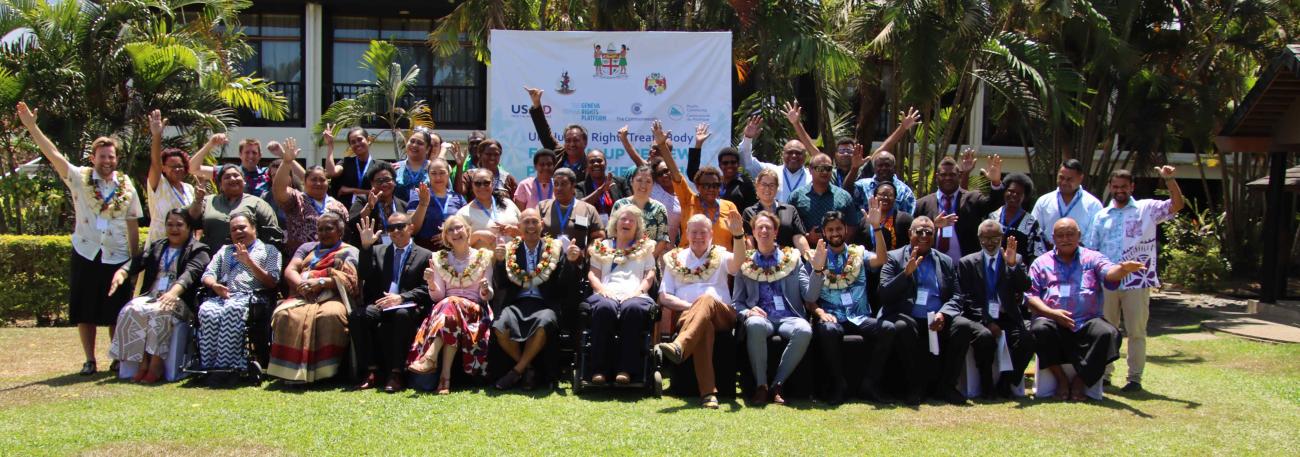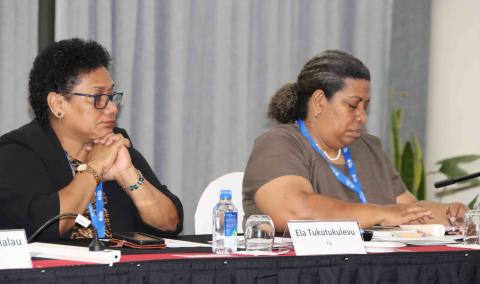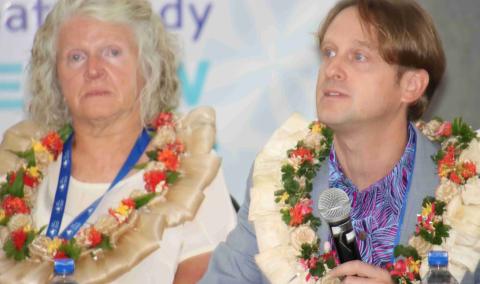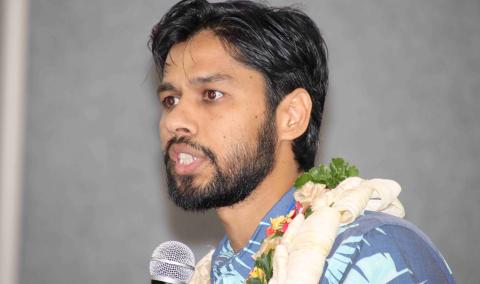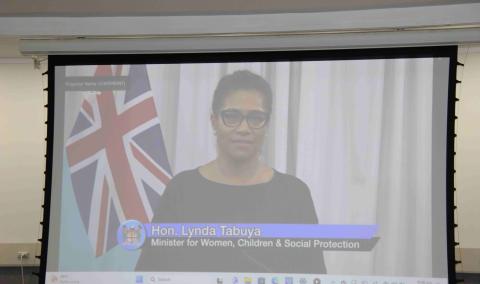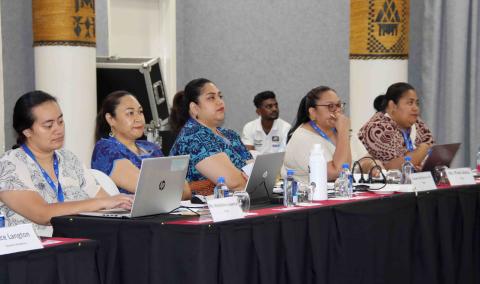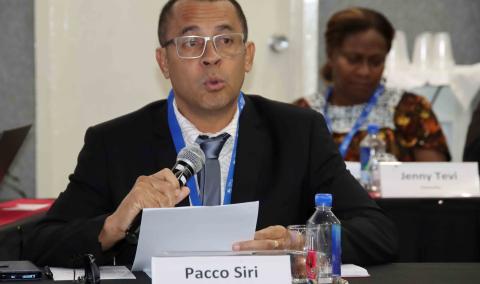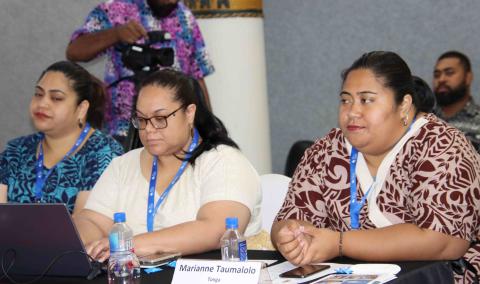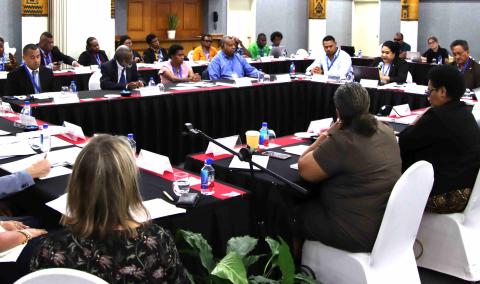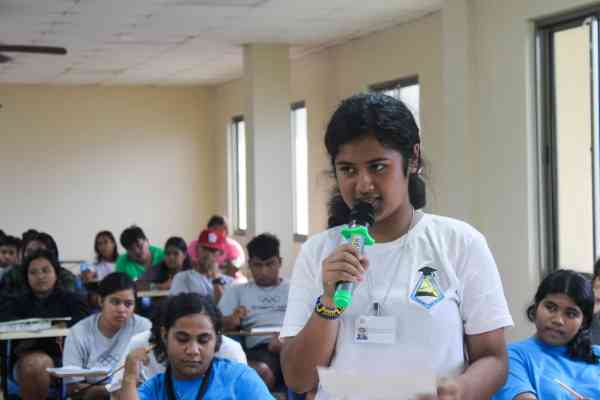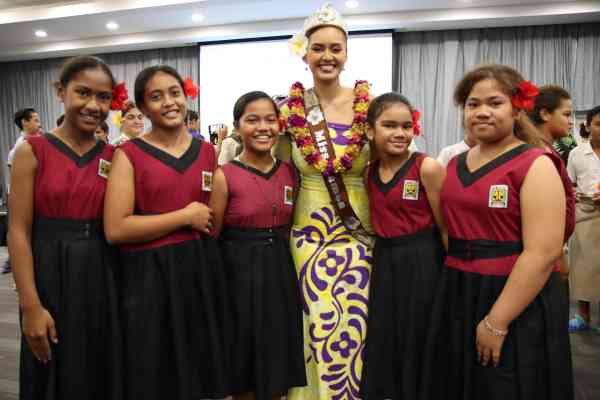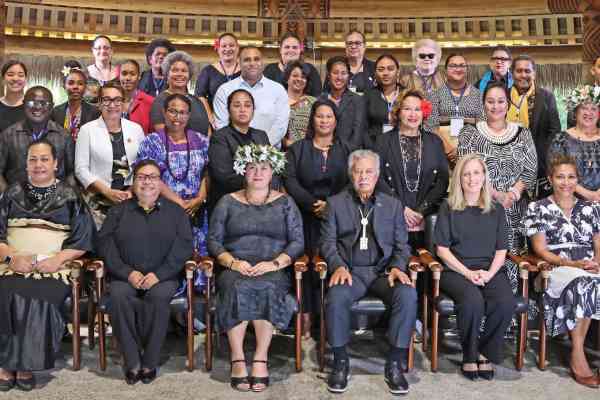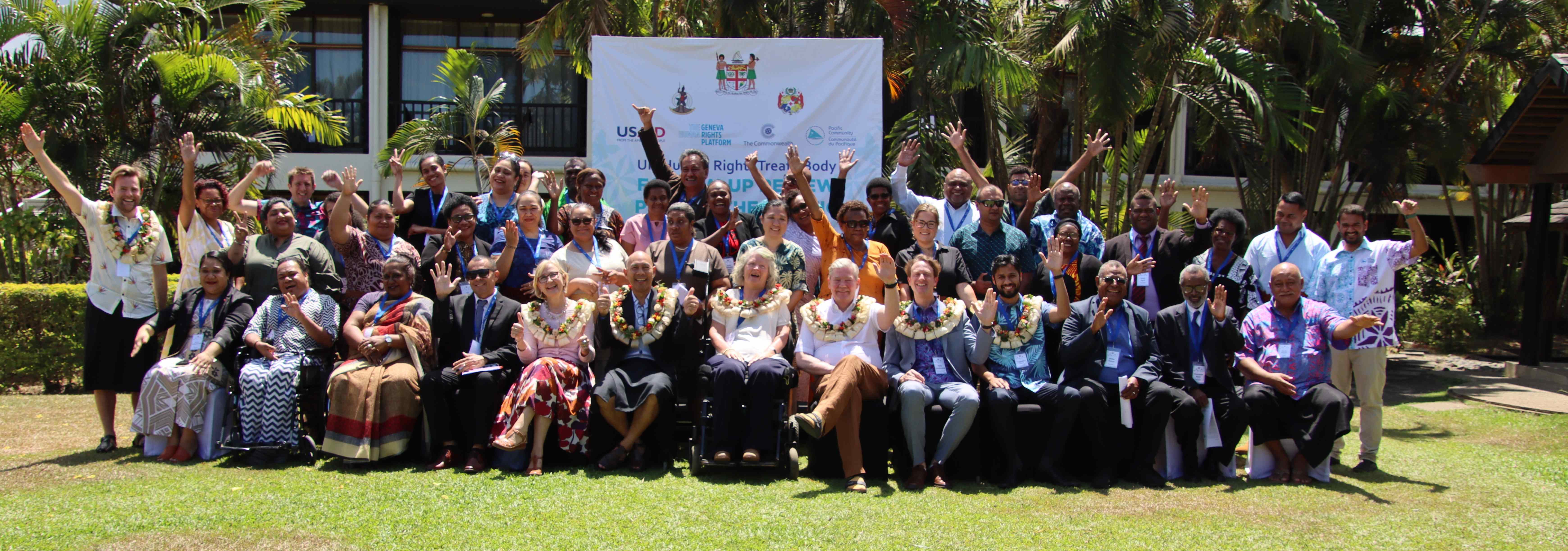
In a landmark event, the Government of Fiji recently hosted the third and final United Nations Human Rights Treaty Body (TB) follow-up review pilot, conducted from November 28 to 30, 2023. The gathering featured the active participation of three Pacific Island countries: Fiji, Tonga, and Vanuatu.
This regional initiative comes on the heels of the first two TB follow-up review pilots held in Sierra Leone in December 2021 and Grenada in March 2022. The TB pilot review process aims to comprehensively assess an innovative procedure that brings UN TBs closer to domestic stakeholders, facilitating a more contextualised follow-up on their recommendations.
Co-organised by the Geneva Human Rights Platform, the Pacific Community (SPC) and the Commonwealth Secretariat, the event zeroed in on the implementation of the latest recommendations issued by the UN Committee on the Elimination of All Forms of Discrimination against Women (CEDAW), the UN Committee on the Rights of the Child (CRC), and the UN Committee on the Rights of Persons with Disabilities (CRPD). SPC's support for this event was funded by the United States Agency for International Development (USAID) through PROJECT Governance.
Honourable Lynda Tabuya, Fiji’s Minister for Women, Children, and Social Protection, emphasised the critical role of implementing treaty body recommendations in effecting positive human rights change. Minister Tabuya stressed the necessity for UN committees to closely engage with regions worldwide, particularly in the Pacific, to align their advice with the diverse circumstances of the Pacific region.
With the Treaty Bodies transitioning to an 8-year review cycle, Minister Tabuya underscored the importance of integrating regional and national engagement into the new modalities, including planned mid-term reviews. Fiji's commitment to ensuring the new Treaty Body system reflects Pacific needs was evident in its support and hosting of this pivotal event.
Bragi Gudbrandsson, a member of the Committee on the Convention on the Rights of the Child (CRC), highlighted the significance of treaty bodies closely interacting with countries and policymakers globally. He stressed the need for understanding and respecting cultural contexts to operationalise general human rights principles effectively.
Gudbrandsson noted the pilot project's demonstration of the importance of regional follow-ups and discussed the potential extension of review intervals to eight years, complemented by a follow-up procedure every five years. He emphasised that regular reviews enhance the implementation of treaty recommendations.
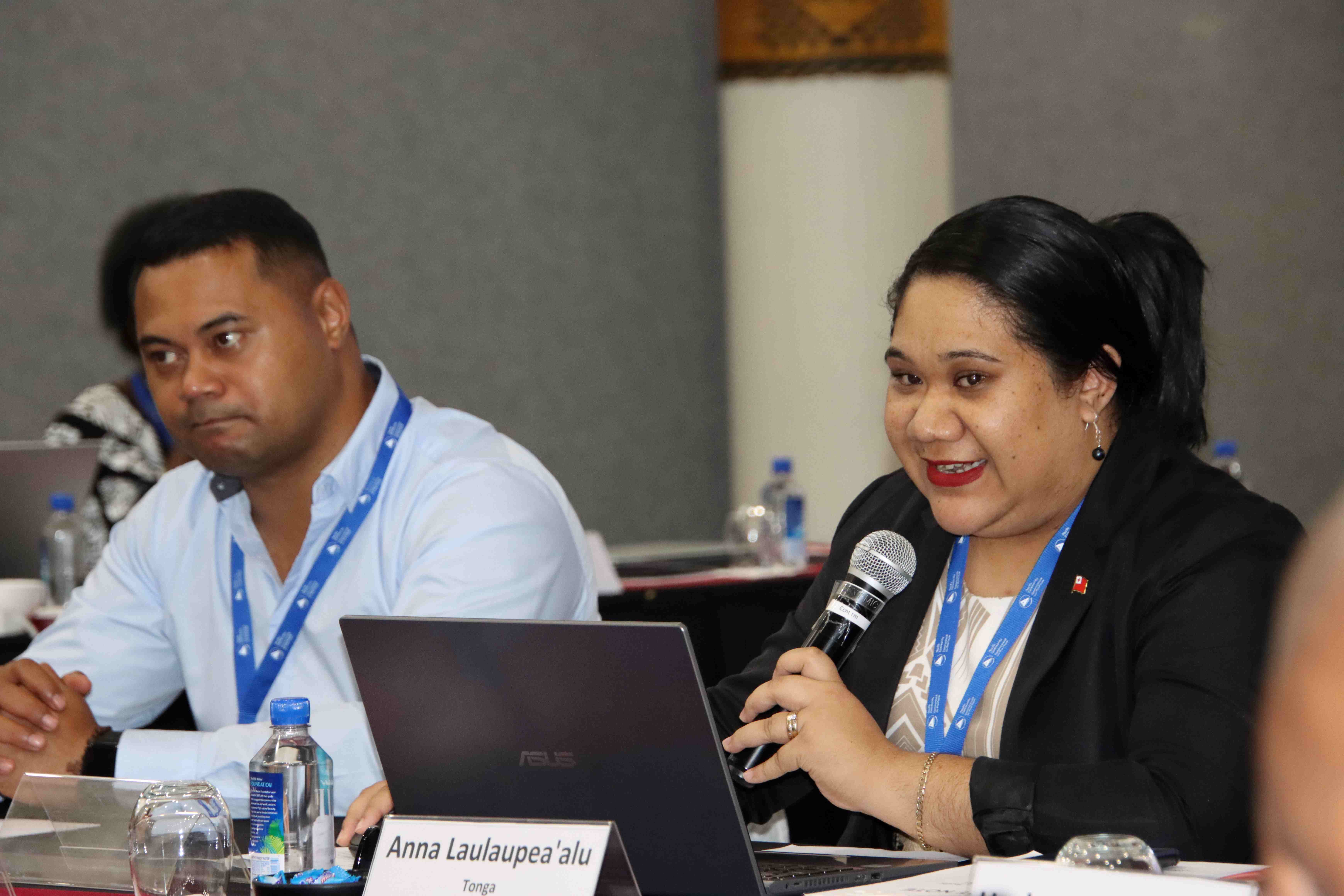 Ana Lutua Laulaupea'alu, Acting Director of the Family Protection Legal Aid Centre in Tonga, highlighted the value of spaces like the pilot exercise, providing constructive dialogues with Treaty Bodies directly to the region.
Ana Lutua Laulaupea'alu, Acting Director of the Family Protection Legal Aid Centre in Tonga, highlighted the value of spaces like the pilot exercise, providing constructive dialogues with Treaty Bodies directly to the region.
The three-day event in Fiji facilitated direct engagement between government officials, representatives from National Human Rights Institutions (NHRIs), Ombudsman offices, and civil society from the three participating Member States with Committee members of CEDAW, CRC, and CRPD, as well as representatives from the Geneva Human Rights Platform and the Commonwealth Secretariat.
Discussions during the treaty body follow-up pilot review centred around shared issues in the Committees' recommendations, addressing gender-based violence, the impact of climate change, corporal punishment, and the rights of women and children with disabilities. This innovative regionalised approach enhances accessibility and visibility while aligning with specific regional needs and challenges in upholding human rights treaties.
Dr Domenico Zipoli, Project Coordinator at the Geneva Human Rights Platform, commended the pioneering approach and its crucial role in addressing region-specific issues such as climate change. The success of this follow-up review pilot positions regionalised review processes as a strategic tool in maximising their impact on TB follow-up sessions.
 Miles Young, Director of the Human Rights and Social Development Division at SPC shared that this pilot Pacific Follow-up Review was the first of its kind and tested a multi-treaty body approach that utilises regional UN hubs.
Miles Young, Director of the Human Rights and Social Development Division at SPC shared that this pilot Pacific Follow-up Review was the first of its kind and tested a multi-treaty body approach that utilises regional UN hubs.
This event was not a formal review of treaty body system but a pilot to test out what a mid-term review could look like.
He added, “This is exactly what a people-centred approach to the Treaty Body system can look like.”
“It is a historic event that other regions and the United Nations can learn from as part of the ongoing Treaty Body reform process, the shift to a new 8-year calendar and new-look mid-term reviews,” Mr Young said.
